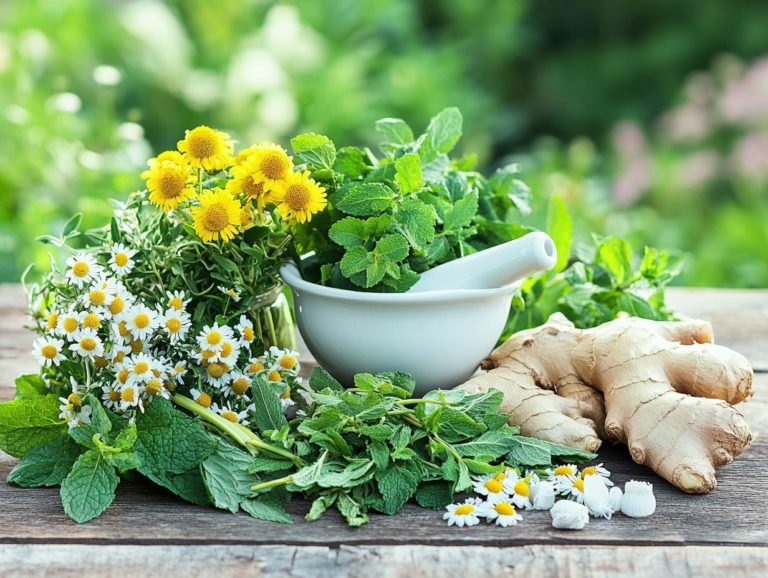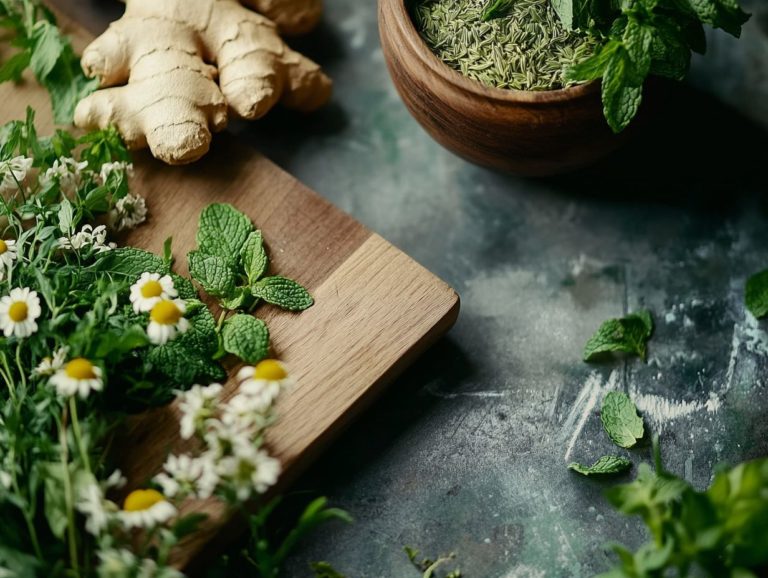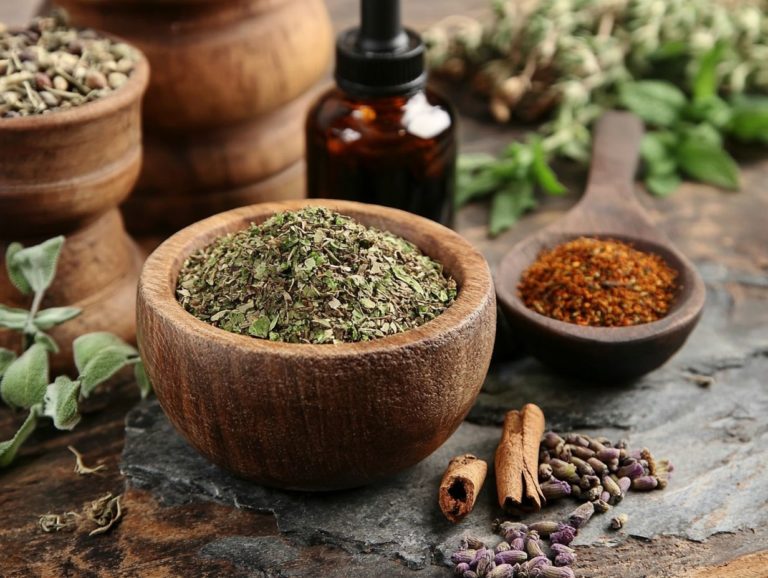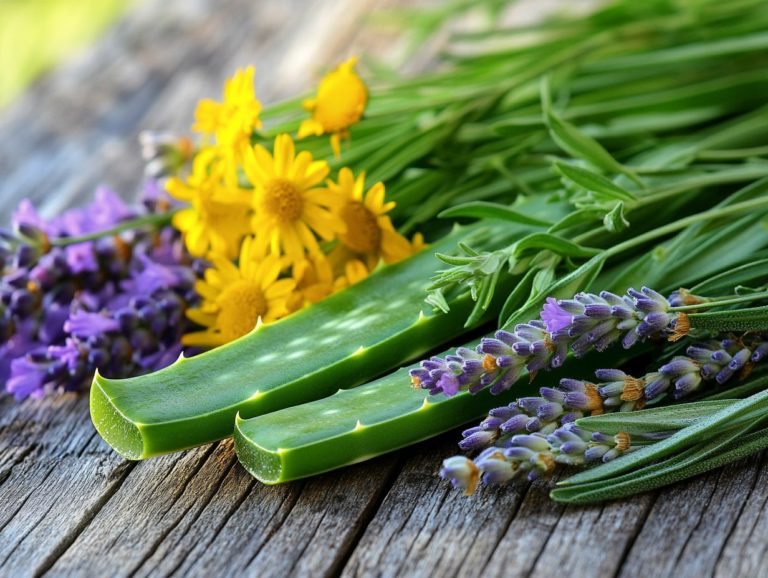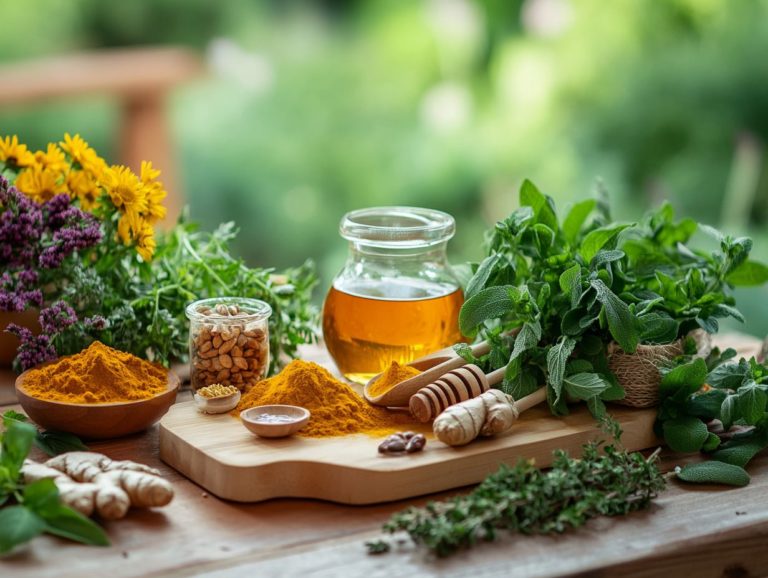Using Herbal Solutions for Cold and Flu Symptoms
Contents
- Key Takeaways:
- Understanding Cold and Flu Symptoms
- Herbal Remedies for Cold and Flu
- Preparing and Using Herbal Solutions
- Safety and Side Effects of Herbal Solutions
- Combining Herbal Solutions with Traditional Treatments
- Benefits and Considerations
- Frequently Asked Questions
- What are herbal solutions and how can they help with cold and flu symptoms?
- Which herbs are commonly used for cold and flu symptoms?
- Are herbal solutions safe to use for everyone?
- How should I take herbal solutions for cold and flu symptoms?
- Can herbal solutions be used alongside conventional medications?
- Are there any potential side effects of using herbal solutions for cold and flu symptoms?
Key Takeaways:

- Herbal solutions can be an effective and natural way to alleviate cold and flu symptoms.
- It is important to properly identify and distinguish between cold and flu symptoms to choose the most appropriate herbal remedies.
- While herbal solutions can provide relief, consulting with a healthcare professional and understanding potential risks and precautions before use is essential.
Understanding Cold and Flu Symptoms
Understanding the symptoms of cold and flu is essential for effectively managing these prevalent viral infections. Both conditions often share overlapping symptoms such as a runny nose, cough, nasal congestion, sore throat, sneezing, watery eyes, headache, fatigue, and body aches.
Recognizing the distinctions between a common cold and the flu can greatly influence your choice of remedies and treatments. This understanding leads to a more favorable recovery. These symptoms disrupt daily activities and reflect how your body fights infections, as highlighted by healthcare experts like Cathy Wong and Michael Menna, DO from Verywell Health.
Distinguishing Between the Two
Distinguishing between cold and flu symptoms is crucial for selecting the right treatment approach. Each condition presents unique characteristics and affects your immune system in different ways. Knowing these differences can empower you to take charge of your health!
Colds typically present mild symptoms like a runny nose, sneezing, and a sore throat, gradually creeping in over a few days. In contrast, the flu often strikes suddenly, bringing along more severe symptoms such as high fever, body aches, and fatigue that can leave you feeling completely drained.
Healthcare professionals often highlight that the flu can compromise your immune system much more than a common cold, potentially leading to serious complications. This distinction underscores the importance of timely intervention, enabling you to pursue tailored treatments that support your recovery and bolster your immune system effectively.
Herbal Remedies for Cold and Flu
Herbal remedies have become quite trendy as natural treatments for cold and flu. They offer an impressive array of solutions to alleviate symptoms and enhance overall health.
Consider elderberry, garlic, honey, and echinacea, each celebrated for their immune-boosting properties, effectively aiding your body in fending off infections. Traditional medicine has long acknowledged the benefits of ginseng and astragalus, providing even more options for fortifying your health during cold and flu seasons. You might also explore DIY herbal remedies for common cold relief to enhance your natural health strategies.
By understanding these herbal solutions, you position yourself to make informed choices in your pursuit of wellness.
Commonly Used Herbs and Their Benefits

Commonly used herbs like elderberry, garlic, honey, echinacea, ginseng, and astragalus offer numerous benefits for those suffering from cold and flu symptoms, particularly in supporting the immune system.
Elderberry is known for its ability to reduce the duration and severity of cold and flu symptoms. Studies suggest that its extract can inhibit viral replication.
Garlic is a potent antimicrobial, providing not just flavor but also a natural defense against infections due to its allicin content.
Honey is often added for its soothing properties, helping to ease throat irritation while also possessing antiviral qualities.
Echinacea is widely recognized for its potential to stimulate immune function, often taken at the first sign of illness.
Ginseng, revered in traditional medicine for its adaptogenic properties, helps the body cope with stress and supports overall health.
Astragalus, traditionally used in Chinese medicine, is believed to enhance resistance to infections, with modern research backing its immune-boosting effects.
These herbs, steeped in tradition yet validated by contemporary studies, provide a holistic approach to managing cold and flu symptoms.
Before trying new remedies, always consult with a healthcare professional to ensure they are right for you!
Preparing and Using Herbal Solutions
Preparing and utilizing herbal solutions for cold and flu involves an array of methods that can significantly enhance the effectiveness of these natural remedies. Whether you opt to brew a soothing tea, craft a potent tincture, or incorporate herbal supplements into your routine, the preparation process greatly influences how these remedies are consumed and absorbed by your body.
By understanding the best practices for herbal preparation, you can harness the benefits of ingredients like elderberry, garlic, and honey, ultimately leading to a more impactful treatment experience.
Methods of Consumption
The methods of consumption for herbal remedies can vary widely, influencing both their effectiveness and the overall health experience during cold and flu treatment. Understanding these methods is crucial for optimizing benefits and improving recovery times.
For instance, teas made from ingredients like ginger and lemon can be soothing and hydrating. Preparing them involves steeping fresh herbs in hot water for about 10 minutes, allowing beneficial compounds to infuse effectively.
Tinctures are concentrated herbal extracts usually mixed with alcohol. They provide a more concentrated dose, making them an efficient option for rapid absorption, which may be beneficial when symptoms start.
Syrups, often created from herbal extracts and honey, can help soothe a sore throat while delivering medicinal properties.
Each method offers unique advantages. Knowing how to use them appropriately can greatly enhance symptom relief and bolster the body s immune response.
Safety and Side Effects of Herbal Solutions
While herbal solutions offer a wealth of benefits, you need to understand their safety and potential side effects when considering these natural remedies for cold and flu symptoms.
Many herbs are generally considered safe; however, they may not work well with your current medications or trigger side effects in certain individuals. Consulting healthcare professionals is a vital step before integrating them into your routine.
Being informed about these factors allows you to fully enjoy the advantages of herbal remedies without putting your health at risk.
Possible Risks and Precautions
When considering herbal solutions for cold and flu, it s important to be aware of possible risks and precautions that can help ensure safe consumption.
Many herbal remedies may interact negatively with prescription medications, leading to unintended side effects. Individuals should be particularly cautious about proper dosing, as taking too much of a seemingly harmless herb can result in toxicity or diminished effectiveness.
Consulting a healthcare provider is crucial, especially for those already taking medications. Professional advice can help navigate potential interactions and tailor herbal use to individual health needs.
Understanding these factors empowers you to make informed choices and promote overall wellness during cold and flu season.
Combining Herbal Solutions with Traditional Treatments
Combining herbal solutions with traditional treatments for cold and flu presents you with a holistic approach to symptom management, ultimately enhancing your overall recovery.
This integrative perspective empowers you to harness the benefits of both realms natural remedies that bolster your immune system and conventional medications that effectively target specific symptoms.
It’s crucial to consider potential interactions and consult with healthcare professionals to ensure optimal outcomes for your health journey.
Act now to prioritize your health with safe herbal remedies!
Benefits and Considerations
Combining herbal solutions with traditional treatments has significant benefits. This approach boosts your immune function and alleviates cold and flu symptoms.
It enhances symptom relief and speeds up recovery time. This allows you to return to your daily activities with greater ease.
By integrating these two modalities, you develop a broader view of health. This approach addresses both the physical and emotional dimensions of illness.
However, it s essential to remain aware of potential drawbacks. Interactions between herbal remedies and conventional medications can occur.
Consulting with healthcare professionals can guide you through these considerations. This ensures you establish a safe and effective treatment plan that maximizes benefits while minimizing risks.
Frequently Asked Questions
What are herbal solutions and how can they help with cold and flu symptoms?

Herbal solutions are natural remedies made from various plant extracts. They can help with cold and flu symptoms by boosting the immune system and relieving symptoms like sore throat, congestion, and body aches.
Which herbs are commonly used for cold and flu symptoms?
Commonly used herbs for cold and flu symptoms include echinacea, elderberry, ginger, and garlic. These herbs have anti-inflammatory and anti-viral properties that can help fight off viruses and alleviate symptoms.
Are herbal solutions safe to use for everyone?
While herbal solutions are generally safe for most people, it is best to consult with a healthcare professional before using them. This is especially important if you have any underlying health conditions or are taking medications.
How should I take herbal solutions for cold and flu symptoms?
Herbal solutions come in various forms, such as teas, tinctures, and capsules. Always read the instructions and follow the recommended dosage for the specific product you are using.
It is also important to stay hydrated while taking herbal solutions.
Can herbal solutions be used alongside conventional medications?
Yes, herbal solutions can be used alongside conventional medications for cold and flu symptoms. However, inform your healthcare provider about any herbal remedies you are taking to avoid potential interactions.
Are there any potential side effects of using herbal solutions for cold and flu symptoms?
While herbal solutions are generally safe, some people may experience side effects like stomach upset or allergic reactions. Discontinue use and consult a healthcare professional if you experience any negative reactions.


